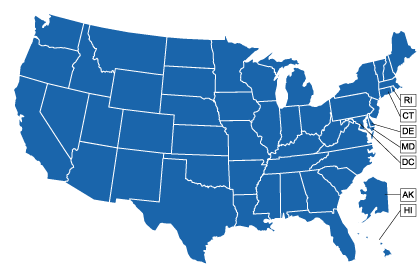Filing a Wage and Hour Claim
Who enforces the law?
The FLSA is enforced by the Wage-Hour Division of the U.S. Department of Labor. Wage-Hour’s enforcement of FLSA is carried out by investigators stationed across the U.S., who conduct investigations and gather data on wages, hours, and other employment conditions or practices, in order to determine whether an employer has complied with the law. Where violations are found, they also may recommend changes in employment practices to bring an employer into compliance.
It is a violation to fire or in any other manner discriminate against an employee for filing a complaint or for participating in a legal proceeding under FLSA.
Willful violations may be prosecuted criminally and the violator fined up to $10,000. A second conviction may result in imprisonment. Employers who willfully or repeatedly violate the minimum wage requirements are subject to a civil money penalty of up to $1,000 for each such violation.
The FLSA makes it illegal to ship goods in interstate commerce which were produced in violation of the minimum wage, overtime pay, child labor, or special minimum wage provisions.
To contact the Wage-Hour Division for further information and/or to report a potential FLSA minimum wage violation, call:
Toll Free: (866) 4USWAGE (866-487-9243)
TTY: (877) 889-5627
(available Monday-Friday 8 a.m. to 5 p.m. Eastern Time)
You may also contact your local WHD office.
If you need further information about your state’s wage and hour laws and/or wish to report a potential state law violation, then you may wish to contact the agency in your state which handles wage and hour/labor standards violations, listed on our site’s state government agencies page.
What are the remedies available to me?
There are several different methods under the FLSA for an employee to recover unpaid minimum and/or overtime wages; each method has different remedies.
Wage-Hour may supervise payment of back wages.The Secretary of Labor may bring suit for back wages and an additional penalty, called “liquidated damages,” which can be equal to the back pay award (essentially doubling the damages) if an employer willfully violated the statute.An employee may file a private lawsuit for back pay and an equal amount as liquidated damages, plus attorney’s fees and court costs. An employee may not bring a lawsuit if he or she has been paid back wages under the supervision of Wage-Hour or if the Secretary of Labor has already filed suit to recover the wages.The Secretary of Labor may obtain an injunction to restrain any person from violating FLSA, including the unlawful withholding of proper minimum wage and overtime pay.
Your state law may have different methods for recovery of unpaid wages, and different remedies to be awarded to those who succeed in proving a violation. For further information, please contact the agency in your state which handles wage and hour/labor standards violations, listed on our site’s state government agencies page.
How do I file a complaint/How long do I have to file?
To file a complaint for unpaid wages under the FLSA, you may either go to the WHD, which may pursue a complaint on your behalf, or file your own lawsuit in court (which may require you to hire an attorney).
Do not delay in contacting the WHD or your state agency to file a claim. There are strict time limits in which charges of unpaid wages must be filed. To preserve your claim under federal law, you must file a lawsuit in court within 2 years of the violation for which you are claiming back wages, except in the case of an employer’s willful violation, in which case a 3-year statute applies. However, as you might have other legal claims with shorter deadlines, do not wait to file your claim until your time limit is close to expiring. You may wish to consult with an attorney prior to filing your claim, if possible. Yet if you are unable to find an attorney who will assist you, it is not necessary to have an attorney to file your claim with the state and federal administrative agencies.
Your state wage law may have different deadlines for recovery of unpaid wages. For further information, select your state from the map below or from this list.

© 2017 Workplace Fairness